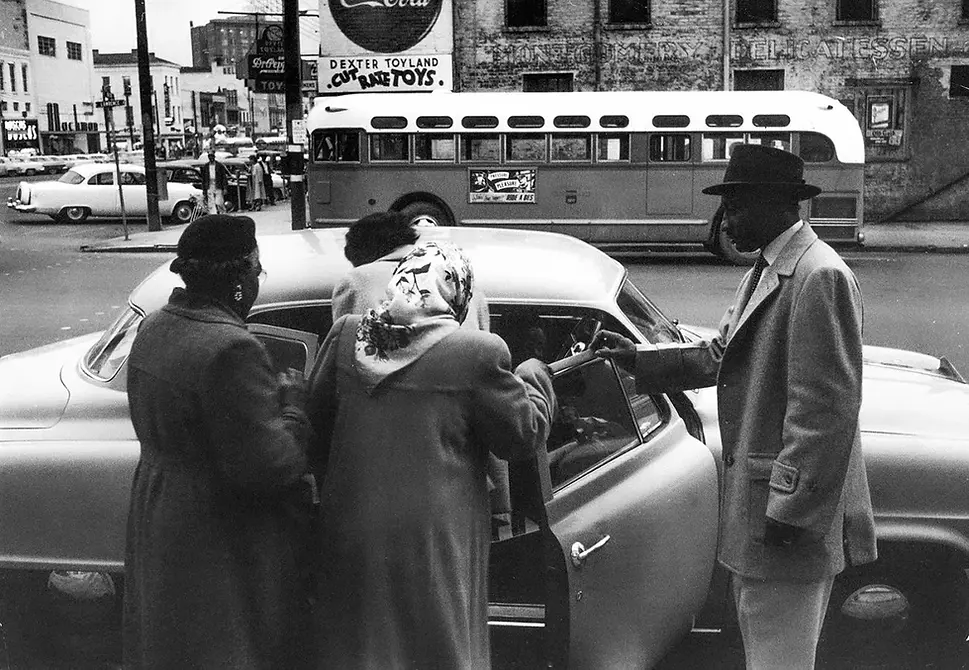Strategies
Organizational Tactics

Carpools & Alternatives
During the Montgomery Bus Boycott, the Black community created organized alternatives to using city buses. Churches and community members developed carpools to help people travel to work, school, and church. These efforts were so effective that city officials tried to shut them down. According to the PDF, Montgomery’s white leaders arrested people who helped organize carpools and even charged Black citizens with minor offenses just to intimidate them (Robinson, 1987, p. 84). Despite these threats, the boycott held strong for over a year, showing how crucial the transportation alternatives were in keeping the protest alive.
The Power of Collective Effort
The success of the boycott didn’t rely on one person or organization. It came from a united community effort. Strength came from Black churches, local groups, and everyday people who refused to give up (Valk & Brown, 2010, p. 8). These churches not only offered rides and meeting spaces but also provided a spiritual and moral foundation for the movement. Everyone played a role in this movement. Whether walking miles each day, helping organize carpools, or offering financial support. The Women’s Political Council, the NAACP, and the Montgomery Improvement Association all worked together, proving that strong networks, shared leadership, and collective action were the real engines behind the boycott’s success.



